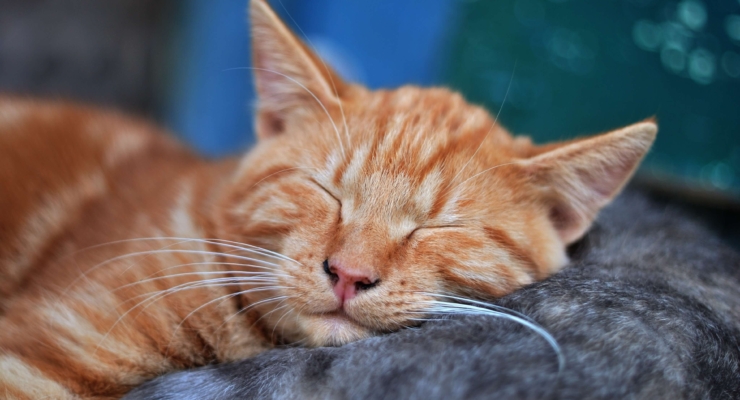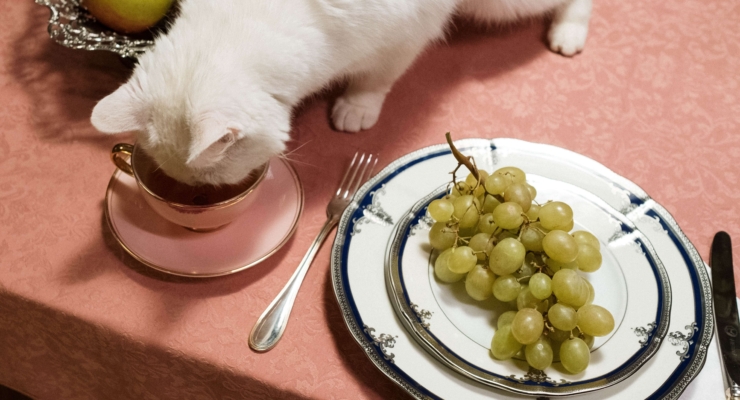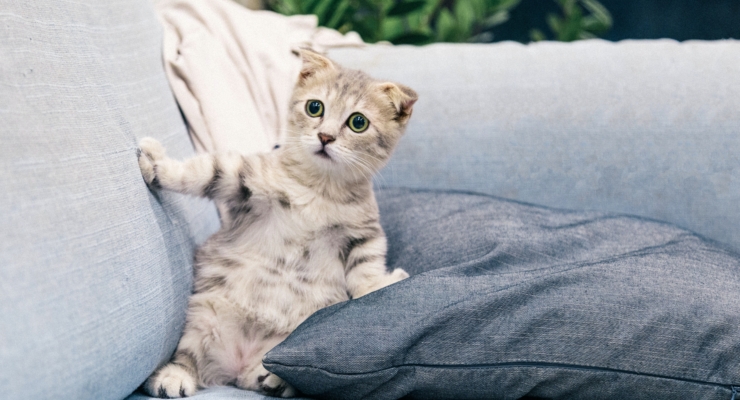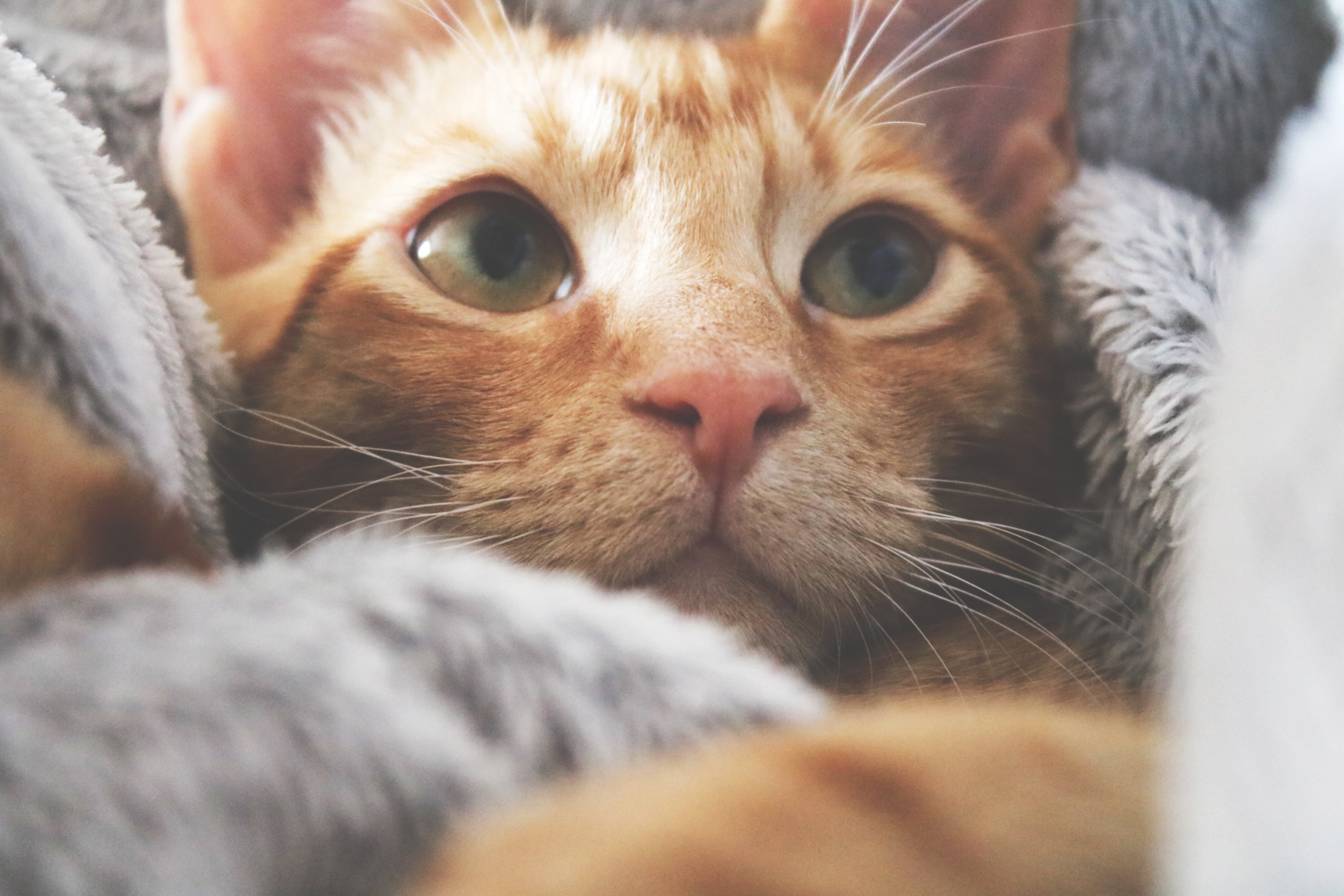If you are a cat owner, you have definitely caught them purring away like little machines. It’s soothing and calming; both for the cats and for their humans. Studies have shown that cat purring helps people de-stress and relax.
Purring in cats: Why do they purr?
For cats, purring is understood to be a form of communication. Have you noticed your cat purring when you pet them? They are letting you know they’re feeling content and happy. You are likely to associate a purring cat with a happy cat. However, that isn’t always the case.
How does purring work?
Cats use the vocal folds located within their larynx to both dilate and constrict their glottis (the valve between the lungs and mouth) to produce the machine-like sound we know so well. Kittens first purr when they’re only three or four days old.
Moreover, did you know that purring isn’t exclusive to domestic cats? Purring is done by animals from the larger feline family as well. This includes Cheetahs, Pumas and Lynxes.
All those facts aside, if you’re curious about what exactly makes your cat’s own mini engine rev up;here are five of the most common reasons why cats purr.

1. Cats purr when they are happy
This is an obvious one. Cats are known to purr, often with their eyes closed and tail still, when they’re feeling happy and content. You might see this accompanied with kneading paws. If your cat purrs when being stroked or petted by you, this is definitely a good sign. Sometimes cats purr when they are in the company of other cats or even while rubbing against inanimate objects. An unsuspecting piece of furniture or an old rug might be subject to your cat’s purring and affection. Don’t be too surprised, this also suggests that they are feeling comfortable and relaxed.
2. Cats purr when they are hungry

If they’re feeling a little peckish and would like some food, your cat might start purring and calling out to you. Here’s a shocker; they’re actually manipulating you! A cat’s hungry purr is different from their usual one. It will most often sound like purring mixed with a whiny, attention demanding meow, known hilariously as a “solicitation purr”. They are deliberately trying to grab your attention so that you’ll put everything aside and give them what they want and let’s face it, you’ll probably do just that.
3. Cats purr when they are healing
Can purring be a sign of pain? Cats are notoriously flippant about their injuries or illnesses, and we very often don’t realize that they are in pain.
Their vocalizations are a hint– if you notice your usually friendly cat growling when approached and purring when it isn’t expected, it may be injured or uncomfortable. They purr because a cat’s purr is known to have healing properties. The frequencies generated by purrs are very low and the ensuing vibrations help cats ease their breathing. Additionally, purring is also said to have an effect on healing bones and muscles, as well as lessening pain.
4. Cats purr when they feel stressed

If your cat had a confrontational run-in with another animal, you might see it huddled up purring to itself right afterwards. This is a sign that your cat is trying to calm itself down. Not only is purring self-soothing, it is also a defence mechanism. Do your best to comfort them and let them know that they’re not in harm’s way. Cats are intelligent and sensitive enough to recognize your tone of voice. They can feel safe or threatened depending on how you speak to them, so take care to speak softly to lessen their stress.
5. Cats purr when they are nursing
Is your cat pregnant or nursing? A pregnant cat would purr during labour to alleviate some of the pain they are feeling. Nursing cats also purr to comfort their kittens. Purring is an instinctual behaviour that almost all cats learn from a very young age. You might even notice kittens purring while feeding, kneading their little paws into the mother’s stomach. They do this to let their mother know that they’re feeling content, relaxed and sated. In this case, a purring cat or kitten is a satisfied one and you have nothing to worry about.
Why doesn’t my cat purr?
Some cats purr so softly that the human ear can’t detect it. Remember that the frequency of a purr is quite low (between 25-150 Hertz). However, you can always place your fingers at your cat’s throat to feel the vibration.
Still no luck? Don’t be alarmed. Some cats just don’t purr. If your cat doesn’t purr, this absolutely does not mean there’s something wrong with them. A cat that doesn’t purr is simply made that way. Give them all the love and attention they deserve anway.
It’s normal to wonder what goes on in the mysterious minds of our feline friends. Check out our other articles if you’re interested in knowing more about your pets’ behaviour. You can also contact our clinic anytime if you feel that something is amiss with your cat and that they need our help.



